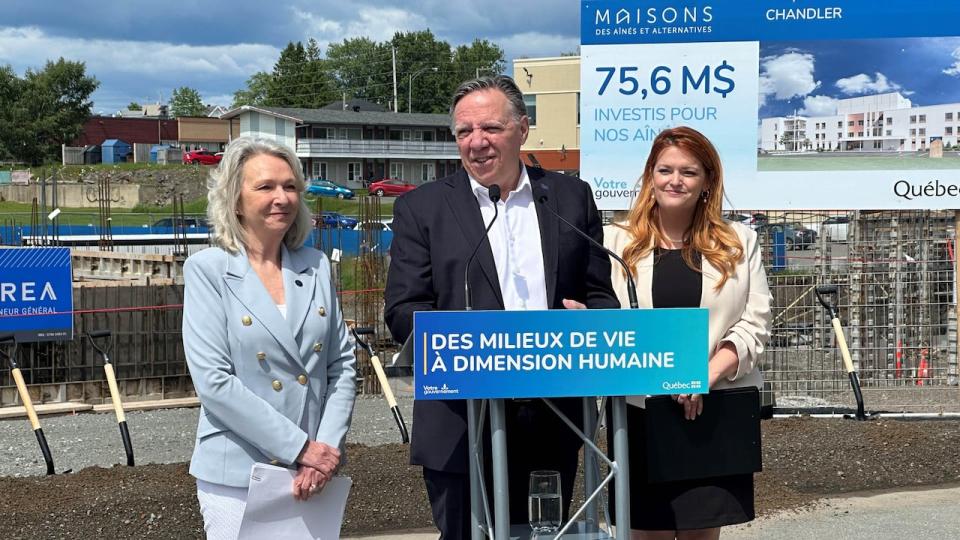'Our only option is to move': Quebec halves its capacity for family reunification over next 2 years
Cynthia Bélanger has been waiting two years to start building her life with her husband, who's originally from Cuba, in Quebec. But as time drags on, she's had to face the possibility that sponsoring her spouse through the family reunification program might be simpler in another part of the country.
"The only option I'm left with is to move," said Bélanger, who has her sights set on New Brunswick.
"It's clear there's nothing left for me here," she said.
The Legault government has imposed a threshold on the number of family reunification applications it can process, it announced on June 26 in the Gazette Officielle du Québec.
Over the next two years, until June 2026, the government will process a maximum of 13,000 applications on a first come, first served basis, representing a decrease of 50 per cent compared to the previous period.
Between 2021 and 2023, the government processed 26,416 applications for family reunification.
Bélanger and her husband are part of the inventory of nearly 40,000 pending files. Applicants trying to bring over a spouse from abroad to Quebec face an average processing time of 34 months, compared to 10 months in the rest of Canada.
Sylvain Paquette has been waiting to be reunited with his Cuban partner in Quebec since 2019. He's also considering leaving the province despite not wanting to leave his job.
"I have a workplace I love, with colleagues I adore, but it's incompatible with my private life," he said.
"Family reunification involves Quebecers like me, who were born and raised in Quebec, who pay taxes in Quebec, and who had the 'misfortune' of marrying a person who did not come into the world in Canada."
According to him, Quebec is on the wrong track by holding missions abroad to recruit workers, when candidates for family reunification could contribute to society.
Threshold necessary, says Legault
François Legault ruled out the possibility of increasing admissions in the family reunification category for immigration, during a press conference last Friday. He said the number of temporary and permanent immigrants has to be limited to ensure the government has the capacity to deliver services to all of them.
"If we want to be able to offer housing services and protect the French language, we can't welcome more [immigrants] including for family reunification," he said.
Legault has capped the total number of new immigrants accepted into Quebec each year to 50,000.

The cabinet of Quebec Immigration Minister Christine Fréchette said that instead of processing new applications, it would focus on files that have been sitting in its inventory for months — or even years. The ministry will stop accepting applications once the threshold of 13,000 is reached, except in specific cases where someone wishes to sponsor a child under 18, for example.
Immigration lawyer Maxime Lapointe, who sued Fréchette in February over long wait times for family reunification, said the government is exposing itself to more lawsuits.
"I think the courts will have to intervene to control the government that is doing whatever it wants," he said.
He added that the immigration thresholds created by the Coalition avenir Québec (CAQ) since its election in 2018 have created backlogs in other categories which won't go away with the new rules.
"What's unfortunate is that [the government] didn't present this to experts, or citizens during public consultations in September 2023," he said.
He said he's received several panicked calls from people asking whether the new regulations will affect them and that moving forward he'll have to detail the ins and outs of making an application in Quebec versus the rest of Canada.
Lapointe dropped his lawsuit against Fréchette in April after the plaintiff's case, who was the subject of the motion, was settled.
Since then, the Quebec association of immigration lawyers, the Association québécoise des avocats et avocates en droit de l'immigration, has sent a formal notice to Federal Immigration Minister Marc Miller asking that family reunification applicants be given the same processing time as applicants in the rest of Canada.


